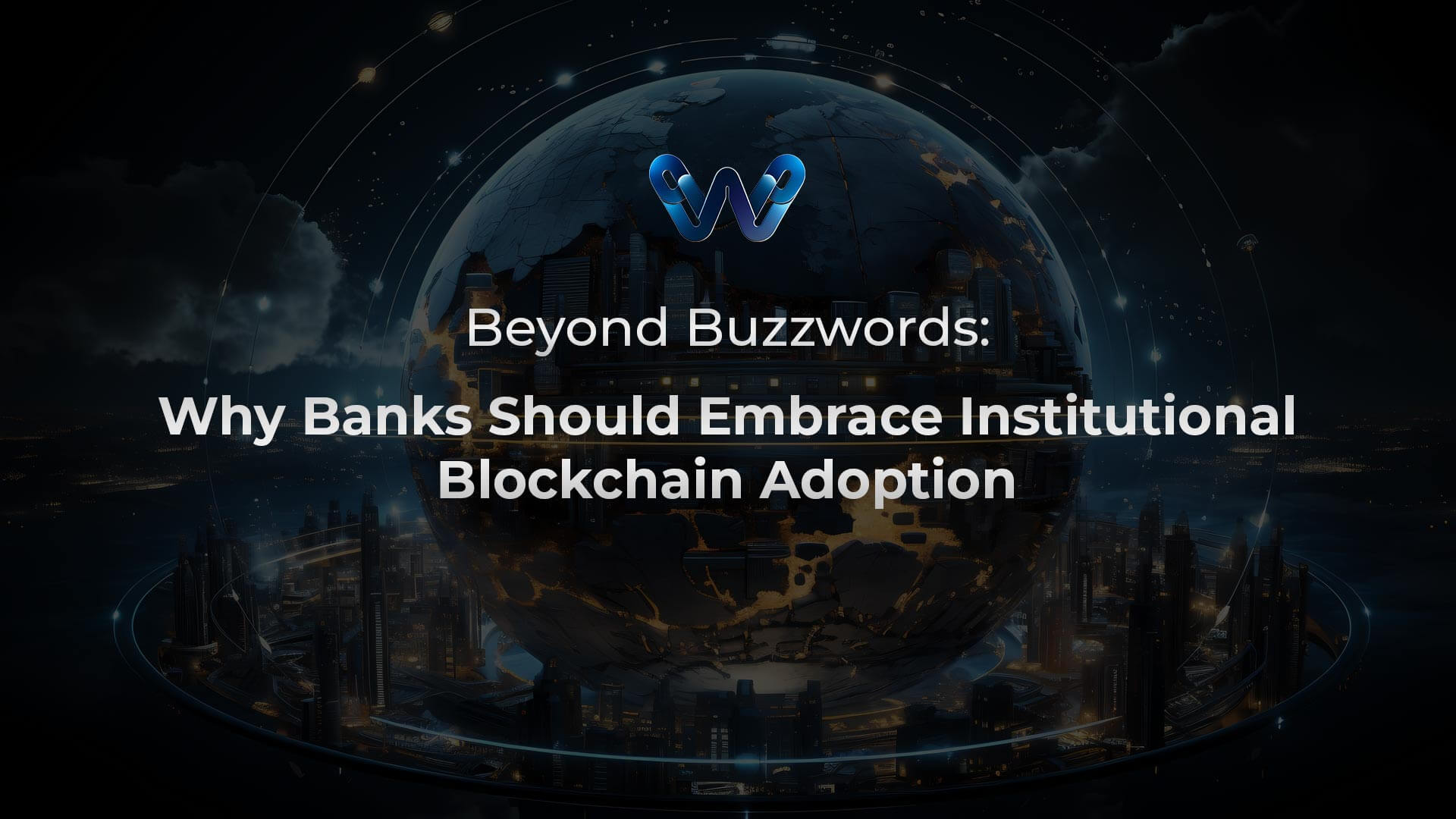Beyond Buzzwords: Why Banks Should Support Adoption of Institutional Blockchain

Originally a niche technology connected mostly with cryptocurrencies, blockchain has become a transforming agent in institutional finance. Although the buzz over speculative cryptocurrencies may have faded, the underlying technology’s ability to transform banking processes is indisputable. Blockchain is no longer a future idea for banks; it is a strategic need.
The issue now is not whether banks should use blockchain but rather how best they might do so to fully utilise it. The advantages from operational effectiveness to improved security and fresh income sources are too great to overlook. Navigating the complexity of blockchain adoption, though, calls for both a clear plan and the appropriate technological partner. Platforms like W Chain come in handy here since they provide customised solutions to enable banks to move naturally into the blockchain age.
Why Should Banks Care: Argument for Blockchain Adoption
Operational Competency
Blockchain can simplify labour-intensive tasks such as trade finance, cross-border payments, and KYC/AML compliance. Reducing middlemen and automating processes helps banks greatly save expenses and speed up settlement times.
Increased Safety
Blockchain ledgers’ unchangeability offers a strong defense against fraud and manipulation. This guarantees compliance with strict legal criteria as well as builds confidence.
Transparency and Auditability
Real-time transaction visibility improves openness and helps banks to satisfy legal requirements and lower running risks.
Fresh Means of Income
Real-world assets can be tokenised thanks to blockchain technology, therefore providing possibilities for creative financial products and services. Participating in distributed finance (DeFi) systems increases income possibilities even further.
Enhanced Customer Experience
Faster, more open transactions and tailored financial services can greatly raise consumer loyalty and happiness.
Key Trends in Institutional Adoption of Blockchain
Increased Investment in Blockchain Initiatives
Financial institutions are heavily investing in blockchain-related projects, including:
- In-house development of blockchain solutions
- Partnerships with fintech companies to explore innovative use cases
- Participation in industry consortia to drive collective advancements
Focus on High-Impact Use Cases
Banks are prioritizing blockchain applications that offer immediate and tangible benefits, such as:- Cross-border payments – Accelerating and streamlining international transactions
- Trade finance – Enhancing transparency and efficiency in trade-related processes
- KYC/AML compliance – Strengthening regulatory adherence and reducing fraud risks
- Asset tokenization – Creating new financial instruments and expanding market opportunities
Additionally, many central banks are actively researching and experimenting with Central Bank Digital Currencies (CBDCs) to modernize financial systems.
Shift Toward Permissioned Blockchains
Financial institutions favor permissioned or private blockchain networks over public ones, as they offer greater control over data access, security, and regulatory compliance.
Growing Industry Collaboration
To overcome interoperability challenges and accelerate adoption, banks are increasingly collaborating with technology providers and industry peers to develop blockchain-powered solutions.
Real-World Institutional Blockchain Adoption
Financial institutions across the globe are increasingly integrating blockchain technology into their operations, driving innovation in multiple areas:
- Blockchain-Based Payment Networks – Secure platforms are being developed to facilitate real-time transaction validation, account verification, and efficient payment information exchange.
- Trade Finance Digitalization – Organizations are leveraging blockchain to streamline commodity trade finance, enhancing transparency and reducing manual processing.
- Central Bank Digital Currencies (CBDCs) – Governments and regulatory bodies are actively researching and piloting digital currency initiatives to modernize financial infrastructure.
- Asset Tokenization & Stablecoins – Institutions are exploring blockchain-powered digital assets, enabling new investment opportunities and expanding digital finance solutions.
Obstacles and the Road Ahead
Adoption of blockchain technology in banking presents difficulties even with the obvious advantages:
- Widespread acceptance depends on clearly and consistently enforced rules.
- Crucially important are security developments, scalability, and interoperability of technologies.
- Banks want clear proof of operational advantages and cost reductions.
How W Chain Delivers Unmatched Value in the Blockchain Space
- W Chain solves the issue of segregated data and fragmented infrastructure by allowing flawless integration between many blockchain networks and legacy systems.
- W Chain guarantees regulatory compliance and data protection by helping to create safe, permissioned blockchain networks fit for the requirements of financial institutions.
- Designed for large volume transactions, W Chain offers the scalability and performance needed for institutional grade uses.
- W Chain’s smart contract capabilities automate difficult financial agreements, therefore simplifying procedures and lowering counterparty risk.
- W Chain provides instruments to help with KYC/AML and other regulatory needs inside the blockchain ecosystem.
- W Chain emphasises helping real-world assets to be tokenised, which presents a big chance for banks to open new revenue sources.
Blockchain -Powered Future of Banking
The financial scene is changing quickly, and decentralisation and openness are essential elements. Active blockchain adoption by banks would help them acquire a competitive edge and establish themselves as pioneers in a sector undergoing fast transformation.
Using systems like W Chain will help banks get over implementation challenges and release blockchain technology’s transforming power. Finance’s future is here, shaped like a blockchain.
Blockchain is a strategic tool for development, efficiency, and innovation; it is no longer a buzzword. Those banks embracing this technology now will lead the financial ecosystem of tomorrow

